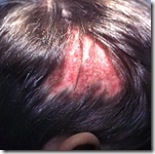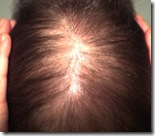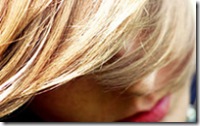Can Hair Loss be Caused by Stress?
 Hair loss can be caused by a number of factors, such as heredity, certain diseases, or hormonal imbalances, and stress can play a substantial role in triggering it. Both emotional and physical stress, especially severe, can work to affect the growth of hair weeks or months after the stressful event or a tense period in your life.
Hair loss can be caused by a number of factors, such as heredity, certain diseases, or hormonal imbalances, and stress can play a substantial role in triggering it. Both emotional and physical stress, especially severe, can work to affect the growth of hair weeks or months after the stressful event or a tense period in your life.
Read full “Can Hair Loss be Caused by Stress?”
How Trichologists Diagnose Hair Loss Conditions
 If you experience unexplainable hair loss or thinning, you should pay a visit to a professional hair and scalp specialist - a certified trichologist, who will diagnose your hair loss condition and recommend the best ways to treat your problems and grow healthy hair. Examination usually includes the following steps:
If you experience unexplainable hair loss or thinning, you should pay a visit to a professional hair and scalp specialist - a certified trichologist, who will diagnose your hair loss condition and recommend the best ways to treat your problems and grow healthy hair. Examination usually includes the following steps:
Read full “How Trichologists Diagnose Hair Loss Conditions”
Tinea Capitis
 Tinea Capitis, also known as ringworm of the scalp or tinea tonsurans, is a hair loss scalp condition, a type of superficial dermatophytosis, which is caused by fungal infection. Every geographical area has its own strain of fungi that can attack hair follicles and hair shafts, thus causing the disease: in North America, these are typically Microsporum canis and Trichophyton tonsurans.
Tinea Capitis, also known as ringworm of the scalp or tinea tonsurans, is a hair loss scalp condition, a type of superficial dermatophytosis, which is caused by fungal infection. Every geographical area has its own strain of fungi that can attack hair follicles and hair shafts, thus causing the disease: in North America, these are typically Microsporum canis and Trichophyton tonsurans.
Telogen Effluvium
 Telogen Effluvium, also known as nonscarring alopecia, is a medical term that stands for excessive hair loss or hair shedding, which is not directly related to natural causes, such as aging. The hair loss has a diffuse character and usually starts abruptly, or, in medical terms, it has an acute onset.
Telogen Effluvium, also known as nonscarring alopecia, is a medical term that stands for excessive hair loss or hair shedding, which is not directly related to natural causes, such as aging. The hair loss has a diffuse character and usually starts abruptly, or, in medical terms, it has an acute onset.
How to Stop Hair Loss in Menopausal Women
 About one third of all menopausal and post-menopausal women in the U.S and other developed countries have problems with hair loss or hair thinning. In addition, scalp hair loss can be accompanied by excessive growth of facial and body hair.
About one third of all menopausal and post-menopausal women in the U.S and other developed countries have problems with hair loss or hair thinning. In addition, scalp hair loss can be accompanied by excessive growth of facial and body hair.
